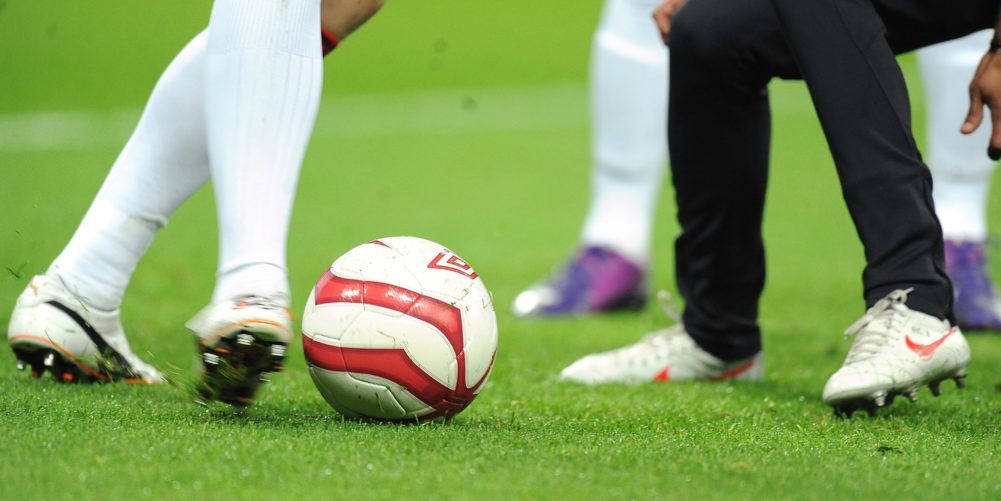Non-league football is changing, characterised by new betting rules and the rise of high-profile ownership. This article examines the interplay of these elements, in particular, the English FA’s betting regulations and the Wrexham furor. By exploring their impact on the integrity and popularity of non-league football, we can gain a clearer picture for those who speak the Arabian language and prefer to bet on English football, of what drives this dynamic part of the sport.
Understanding FA Betting Rules
The Football Association (FA) has issued strict betting rules that apply to everyone involved in football—players, managers, coaches, and club staff. These rules, introduced in August 2014, prohibit all forms of betting on football matches or competitions worldwide. This ban applies to all levels of English football, from the Premier League to the Northern, Southern, and Isthmian Leagues. It also covers betting on transfers, the appointment of managers, and other football-related matters.
These rules aim to protect the integrity of the sport. By preventing conflicts of interest, the FA ensures that all matches are played fairly. There have been several notable breaches of these regulations. For example, Brentford’s Ivan Toney is currently serving an eight-month ban for betting offenses, and Newcastle’s Sandro Tonali received a ten-month ban for his involvement in illegal betting.
The “Wrexham Effect” and Its Influence
When Hollywood actors Ryan Reynolds and Rob McElhenney bought Wrexham AFC, they brought significant media attention to non-league football. This celebrity ownership has not only put Wrexham in the spotlight but has also sparked a wider interest in non-league football. This phenomenon, known as the “Wrexham effect’,” has led to more fans attending matches, increased merchandise sales, and a rise in betting activity on non-league matches.
The “Wrexham effect” shows how high-profile owners can raise the profile of lower-league clubs and make them more attractive to fans and bettors. While this increased attention can bring financial benefits to clubs, it also raises concerns about potential betting-related issues. The need for strict enforcement of FA regulations is vital to maintain the integrity of the sport amidst this new popularity.
The Impact of Betting on Non-League Football
With the increasing popularity of non-league football, betting on these matches has also increased significantly. As the expert team of Casinoelarabs reminds us, for the 2024-25 season, bookmakers, that you can find on this website, are offering a wider range of bets on non-league matches, including the popular combination bets on top teams such as Barnet, the current bookmakers’ absolute favorite of the National League.
However, the increase in betting also raises concerns about potential match-fixing and insider trading. Match-fixing is the deliberate influencing of the outcome of a match for betting purposes. Insider trading occurs when someone uses non-public information, such as team news or injuries, to gain an unfair betting advantage. Both practices seriously threaten the integrity of the sport.
The FA has issued strict rules prohibiting players, managers, and club staff from betting on football matches worldwide. They also prohibit the passing of insider information that could be used for betting. To enforce these rules, the FA works with the Gambling Commission and betting companies to monitor suspicious betting patterns.
As non-league football continues to grow, maintaining a balance between exploiting new opportunities and protecting the integrity of the game will be key to its long-term success.
Challenges and Consequences of Breaching Betting Rules
The FA strictly enforces its betting regulations and imposes substantial penalties on those who break the rules. Prominent cases, such as those of Ivan Toney and Kieran Trippier, show the serious consequences of such violations. At the end of 2020, Trippier was handed a ten-week ban and a £70,000 fine for leaking inside information about his transfer to Atletico Madrid. Toney was banned for a large part of the season for his betting violations.
These cases underline the importance of complying with FA regulations to protect the integrity of the sport. The consequences of breaching these rules go beyond individual penalties and can damage the reputation of clubs and the entire non-league football community. Compliance with the rules is crucial to maintaining confidence and fairness in the game.
Future Prospects for Non-League Football and Betting
As non-league football grows in popularity, the relationship between betting and sport is likely to evolve. We may see changes to betting regulations to address new challenges, the implementation of advanced technology to monitor betting activity, and efforts by clubs to balance the financial benefits of increased betting with the need to maintain integrity.
Clubs can play a proactive role in educating players and staff on the importance of complying with FA regulations and promoting a culture of integrity. This includes regular training sessions and clear communication about the consequences of betting violations. By fostering an environment where the rules are adhered to, clubs can help ensure that non-league football remains a fair and enjoyable sport for all involved.
Conclusion
The interplay between betting regulations and the rising popularity of non-league football presents both opportunities and challenges. This also applies to those who like to bet on English football matches and from Arab countries. Bookmakers that accept such bets and have an interface in Arabic can be found on the platform of betting and online casinos, Casinoelarabs. As the sport continues to gain attention, especially through high-profile owners and increased media coverage, it is important for all stakeholders to manage these changes responsibly. By adhering to the FA’s betting rules and promoting integrity within the game, non-league football can thrive while ensuring that the spirit of the sport is maintained.























